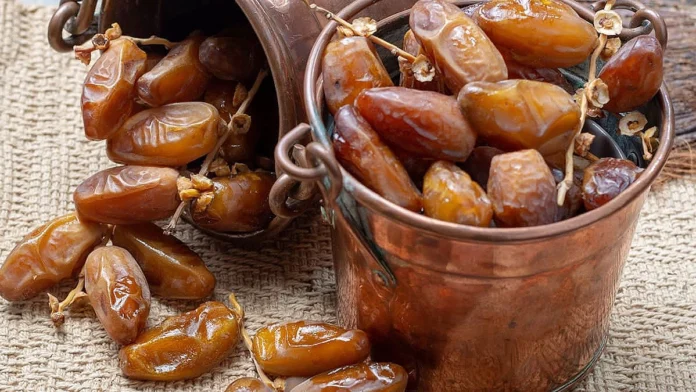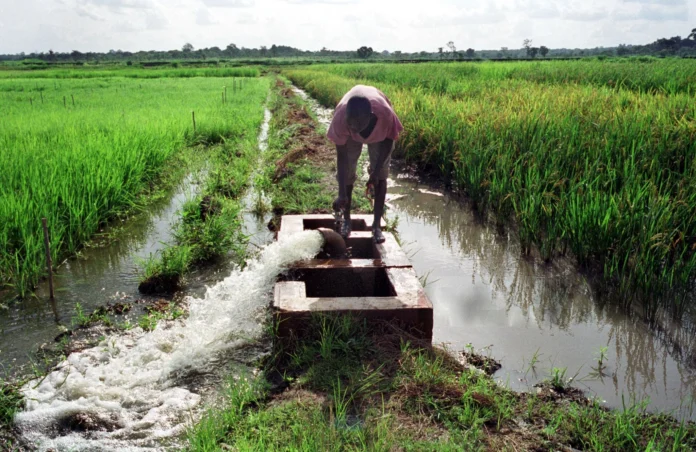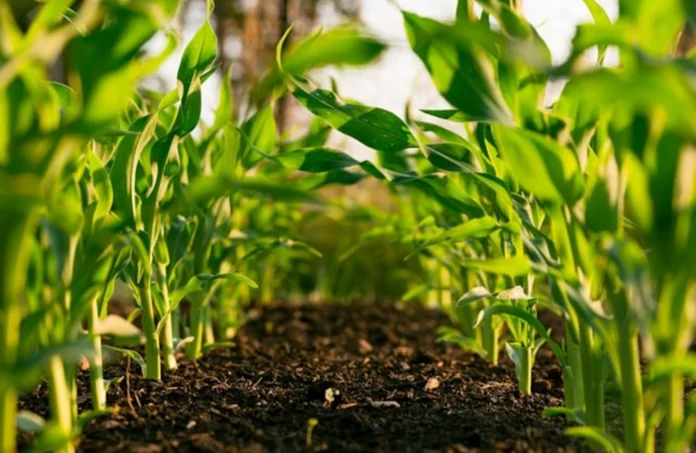U.S. Farmers Fear Export Collapse as Trump Reimposes Tariffs, China Retaliates
Already struggling with depressed commodity prices, American farmers now face another blow as President Donald Trump’s new tariffs threaten to further reduce their exports.
“We knew this was coming,” said Jim Martin, a soybean and corn farmer in Illinois. “Now we’re just worried about how this will all play out.” On Saturday, the U.S. implemented a universal 10% tariff on imports, adding to existing duties. By Wednesday, the Trump administration plans to raise tariffs even higher for dozens of countries, including China, which will face an additional 34% levy.
China retaliated swiftly, imposing equivalent tariffs on U.S. goods starting Thursday.
A Steep Decline in Exports
Last year, U.S. agricultural exports to China—its third-largest trading partner after Mexico and Canada—totaled $24.6 billion. Soybeans alone accounted for more than half (52%) of that figure, far outpacing beef (6%) and cotton (6%).
Farmers still remember the fallout from Trump’s first term, when China imposed 25% tariffs on U.S. soybeans in 2018 in response to earlier U.S. protectionist measures. That year, soybean exports to China plummeted by 75%.
To offset part of the 27billioninlostexportrevenue,theU.S.DepartmentofAgriculture(USDA)injected23 billion in aid between 2018 and 2019. Despite the financial strain, voters in 444 agriculturally dependent counties overwhelmingly backed Trump in the last presidential election, with 78% support—up from 73% in 2016.
“The president says things will improve in the long run,” Martin noted. “But we have to decide how long we’re willing to wait.”
Brazil Capitalizes on U.S. Weakness
The tariff hike comes as soybean prices hover near their lowest levels since 2020, weighed down by abundant production and stockpiles.
Even before this latest trade war escalation, U.S. soybeans were struggling to compete with Brazilian exports, bolstered by a strong dollar. In 2015, the two soybean giants were neck-and-neck in global exports. This year, Brazil is projected to export more than double the volume of the U.S. (105 million tons vs. 50 million), with American exports stagnating for a decade.
Brazil’s dominance was further cemented in November with the opening of the massive Chancay port terminal in Peru—a Chinese-funded project that will streamline food exports to China.
“There will be even fewer reasons to buy U.S. soybeans,” predicted Michael Slattery, a Wisconsin farmer growing corn, soybeans, and wheat. “Brazil’s prices are much cheaper, by a long shot.”
Losing the Chinese market is a “major blow,” warned Cornell University professor Christopher Barrett, “because finding alternative buyers is extremely costly.”
Double Trouble for U.S. Farmers
Unlike in 2018, when Trump targeted only China, this round of tariffs affects all U.S. trading partners—potentially triggering retaliatory measures from other nations.
For American exporters, the U.S.-China trade clash is a “double whammy,” according to the American Farm Bureau Federation (AFBF). Not only could their sales suffer, but “tariffs will also drive up the cost of supplies,” from machinery to fertilizer.
“This is a major disruption to the international order,” Slattery remarked.
“I tried to sell as much soy and corn as I could,” he said, “before Trump announced how high the tariffs would go.”
The Road Ahead
With global markets in flux and Brazil gaining ground, U.S. farmers are bracing for another difficult season. While government aid may soften the blow, many worry about the long-term consequences of escalating trade tensions.












